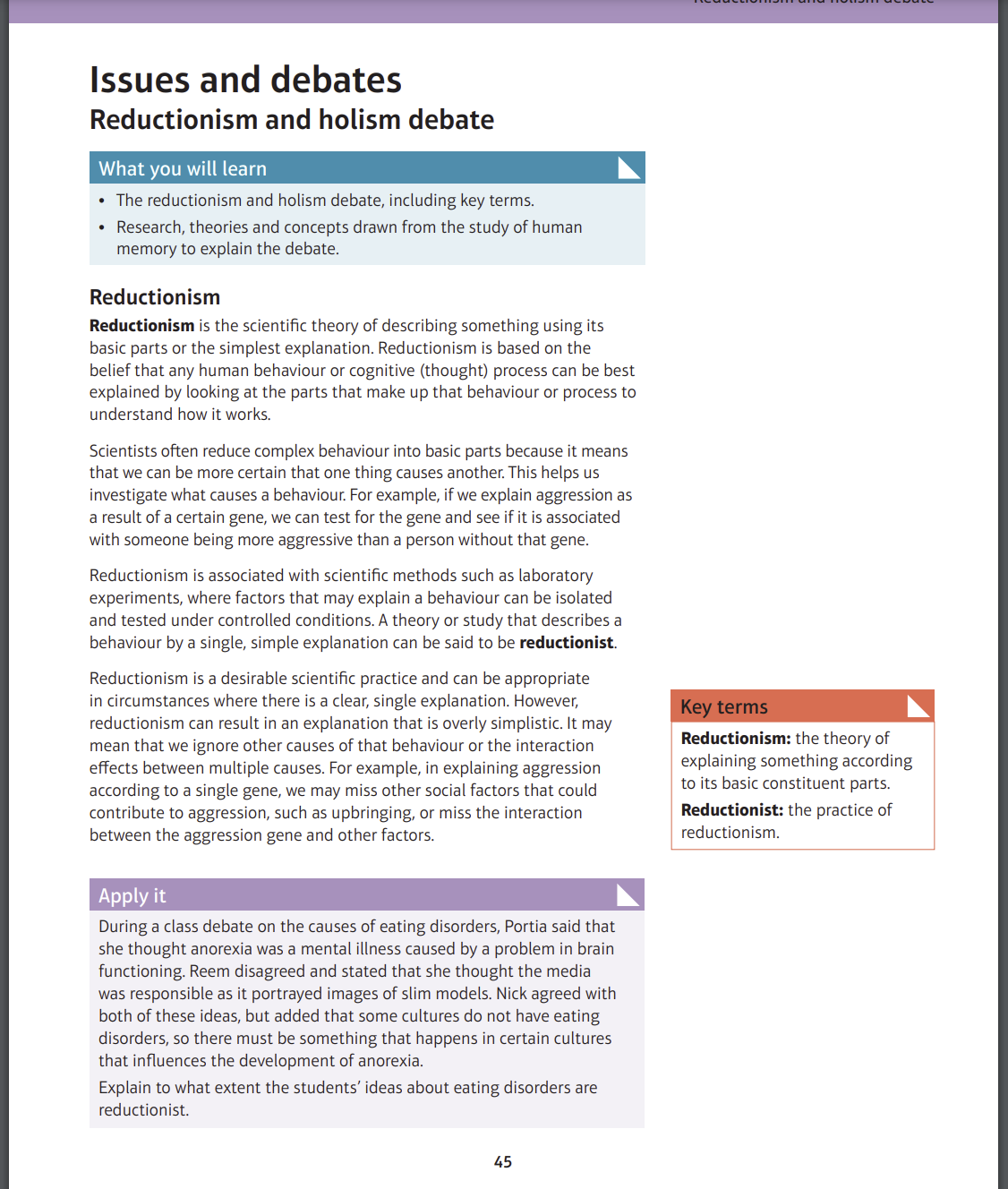Explain to what extent the students’ ideas about eating disorders are reductionist.

Understand the Problem
The question is asking to explain to what extent the students' ideas about eating disorders adhere to reductionist principles, considering the complexity of the issue and the various factors involved.
Answer
The students' ideas are mostly reductionist, focusing on single causes like brain function, media portrayal, and culture, ignoring multifaceted interactions.
The students' ideas about eating disorders are largely reductionist. Portia attributes anorexia solely to brain function issues, ignoring psychological, cultural, and societal influences. Reem focuses on media portrayal, overlooking biological and personal factors. Nick introduces cultural influences, which broadens the perspective slightly, but still lacks a multifaceted approach.
Answer for screen readers
The students' ideas about eating disorders are largely reductionist. Portia attributes anorexia solely to brain function issues, ignoring psychological, cultural, and societal influences. Reem focuses on media portrayal, overlooking biological and personal factors. Nick introduces cultural influences, which broadens the perspective slightly, but still lacks a multifaceted approach.
More Information
Reductionism can oversimplify complex issues like eating disorders by attributing them to a single cause, ignoring the interplay of biological, cultural, and psychological factors.
Tips
Common mistakes include attributing complex disorders to a single factor, without considering the interplay of various influences.
AI-generated content may contain errors. Please verify critical information